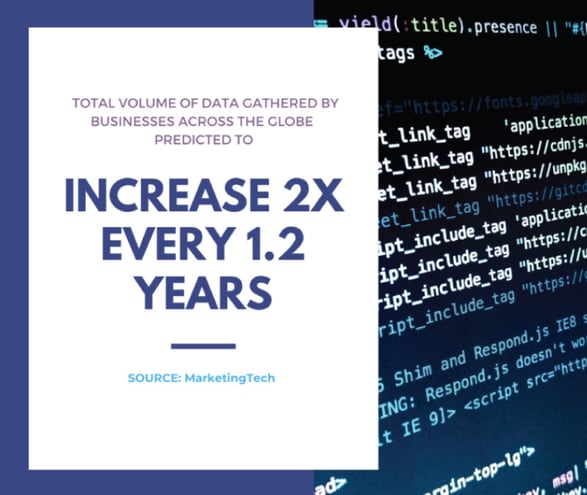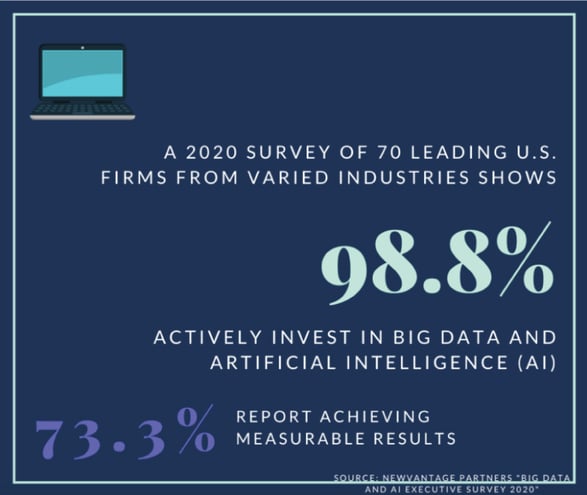Where To Collect Consumer Insights
March 19, 2020 •DJ Team

Depending on the types of consumer insights your business plans to use, you may look for valuable online data in a variety of places. To get an accurate view of your customer journey and consumer buying habits, take a diversified approach to data discovery.
Click here to get a free consumer insight report custom to your business.
Does your company rely primarily on just one or two online data sources to formulate consumer insights? Consumers search online for information in more than one way, they engage with your company through multiple channels and gather research using a variety of data discovery tools. That’s a lot of valuable touchpoints missing from your data analytics if you depend on a single platform to collect online data.
So, where should your company look for consumer insights? Some businesses choose to take a multi-touch attribution approach, collecting valuable online data from a myriad of sources and aggregating the results. They utilize those consumer insights to both monitor digital marketing performance and evaluate the effectiveness of their current customer buying journey. They confidently make strategic marketing, operational and budget decisions based on solid data insights.
A PwC analytics survey of more than 1,000 senior executives discovered highly data-driven organizations are three times more likely to report significant improvements in decision-making compared to companies that rely less on data. Those benefits transform a business on every level, from streamlined efficiency and an improved lead nurture process to proven ROI for digital marketing campaigns and targeted content that drives more traffic.

Data revolution spawns business intelligence insights
In a survey of business leaders, 89% said they believe big data will revolutionize business operations — just like the Internet did — and consider investments in business intelligence tools or vendors critical to processing the vast volume of data available.
When it comes to the extent of data and various types of consumer insights companies can access, the possibilities are truly endless, thanks to rapidly evolving technology like artificial intelligence (AI) and other immense leaps of progress made in the martech world the past few years.
“Marketing is now a technology-powered discipline because software is how marketing ‘sees’ and ‘touches’ customers in a digital world,” states a recent opinion column published by MarketingWeek. “Anybody working in marketing today is dealing with marketing technology (martech), since digital by its very nature is technology-based. The customer and their adoption of digital — and particularly mobile — is one of the driving forces for this change.”

Types of consumer insights
With endless online data streaming in every second of every day, there are an infinite number of angles you can take when formulating your company’s consumer insights. Mine for consumer data using a multi-faceted strategy to see the full consumer journey and gain actionable insights.
The most popular types of consumer insight tools and sources include:
- Predictive search: Study how people search for your products and how they conduct research prior to purchase. What questions do they type or say into the search engine? Figure out what they want to know more about, then create content and digital ad campaigns centered around answering those consumer questions.
- Shopping insights: Evaluate organic search data to identify which brands and products rank most popular in your industry and market. See what kind of content makes the top of page 1 — is it a video, business blogs or mostly related organic news and educational websites? Or, is it a snippet provided to answer the consumer’s question at a glance? No need to reinvent the wheel when you can learn what works for others and apply those lessons to your own content strategy.
- Mobile mining: More people search the internet on their smartphones than any other device, often using voice-assisted technology to ask questions and find information. Pay attention to what mobile users search for and how they’re phrasing their inquiries so you can better target your digital marketing strategy around those words and, most importantly, provide the answers they’re looking for online.
- Content analysis: A look at your website’s page-by-page performance will provide insight into your most popular landing pages and pieces of online content, which you can amplify through the rest of your digital marketing channels. Which blogs consistently drive the most traffic? Identify keywords you wish to rank for but lack a sufficient amount of relevant online content to cover that topic.
- Competitive analysis: You know your strengths, but do you also know your weaknesses? Look at the content produced by your competitors that rank higher for a particular phrase, video topic or search result. Fill those content gaps to strategically improve online performance and drive more traffic away from the competition and to your site instead.
If one of your top-performing social posts, eBooks or online articles contain outdated information or could be even better if slightly reworked, take the time now to improve those existing pieces of content so they reflect your standard for providing high-quality and timely information. Add in new trending keywords wherever possible — particularly the headline, subheads, intro text, metadata description, photo captions and alt text — to improve it even further. Search engines also reward regular updates to a website, which indicate it’s active and current.
SUGGESTED READ: What do people search when researching, “remote employees”?
Consumer data platforms deliver powerful insights with business intelligence
Small to medium-sized companies trying to compete with multi-million dollar technology budgets are turning to SaaS platforms that deliver affordable business intelligence for smaller businesses and startups, states a 2020 Analysis of Trends, Data and Market by FinancesOnline.
By investing in data analytics software that specializes in digesting cross-channel data, companies gain clearer perspective on consumer behavior trends as well as raise the odds of increasing lead volume and converting those leads into sales.

Using detailed consumer insights, your marketing team can attract leads higher up in the funnel by planning out a targeted, cohesive content marketing strategy. Provide consumers searching online for your product or service with helpful, ultra-relevant information to move them closer to a purchase, while at the same time building consumer trust and brand authority.
By harnessing cloud-based, aggregated data analysis, your company gains invaluable information, such as key phrases and questions consumers commonly enter into a search engine, which organic websites and what kind of videos rank for top keywords in your industry.
Which companies competing in your arena are paying for digital shopping or text ads using the targeted search terms, and where does your business rank versus your competition for keywords with the highest search volume? Find a data tool that delivers all of those consumer insights and then some.
If you’re still relying on simple data from a single source, now is the time to launch into the next quarter with the power of consumer behavior analytics driving your business decisions. To see first-hand how our dedicated team can help your company transform consumer data into actionable insights - start your free trial today!
Featured Articles
Categories
- Attribution Tracking (13)
- Channel Optimization (11)
- Consumer Insights (68)
- Content Marketing (251)
- Data Science (8)
- Digital Marketing (6)
- Digital Transformation (26)
- Enterprise (10)
- Lead Generation (14)
- Market Intelligence (8)
- Marketing Analytics (39)
- Marketing Attribution (57)
- Marketing Management (153)
- Marketing Operations (86)
- Organic Search (222)
- Paid Search (52)
- Pillar-Based Marketing (63)
- Programmatic Advertising (9)
- SaaS Content (14)
- SaaS Marketing (29)
- Search Marketing (111)
- SEO Keyword Research (28)
- SEO Pillar (18)
- SEO Strategy (46)
- SMB (5)
- Website Content (12)


